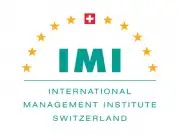Bachelor's degree programs abroad for international students
- Advantages of studying Bachelor's programs abroad
- Formats and levels of Bachelor's programs abroad
- Top universities for Bachelor's programs abroad
- How to apply for Bachelor's programs abroad
- Language of instruction and preparation for applying to Bachelor's programs abroad
- Tuition fee for Bachelor's programs abroad
- Scholarships and grants for Bachelor's programs abroad
- Career prospects after Bachelor's programs abroad
- Frequently asked questions

Bachelor of Science - Industrial Engineering & Management
Constructor University - Bremen, GermanyOne of the broadest and most adaptable engineering specialties is industrial engineering. It has been argued that while engineers create things, industrial engineers improve them. The construction and administration of systems that effectively integrate people, resources, and energy are topics covered…

Bachelor of Science - Mathematics
Constructor University - Bremen, GermanyMathematics is the cornerstone of science, with applications in the natural sciences, engineering, economics, finance, and even the social sciences. A bachelor's in math combines intellectual breadth and disciplinary depth.
A bachelor's degree in mathematics qualifies for graduate study…

Bachelor of Science - Computer Science
Constructor University - Bremen, GermanyComputer Science is at the center of many modern industries, as computer systems and IT underpin practically all manufacturing processes.
Computer technology develops quickly, yet there are underlying fundamentals. Constructor University's Computer Science curriculum focuses on applying…

Bachelor of Science - Mathematics, Modeling and Data Analytics
Constructor University - Bremen, GermanyFrom the elegance of theory and pure thinking to applications in nearly all fields of the natural sciences, engineering, economics, finance, and even the social sciences, mathematics is the cornerstone of science. Even though mathematics is an old subject and has been used for centuries, data science…

Bachelor of Science - Electrical and Computer Engineering
Constructor University - Bremen, GermanyMicroelectronics advancements have triggered a digital revolution in which computers take center stage. While we still think of computers as desktop or laptop computers, digital computing and digital signal processing have become critical for many of the products we use every day, including cars,…

Bachelor of Science - Robotics and Intelligent Systems
Constructor University - Bremen, GermanyThis program covers engineering methods and technologies for creating artificial mobile systems, such as robots, that are independent of constant human supervision, allowing mobile systems to perform autonomous intelligent operations. Robotics and automation are the primary application areas, but…

Bachelor of Arts (Hons) - International Culinary Arts
International Management Institute SwitzerlandThis is an advanced course. Our graduates are prepared to meet the demands and challenges of the professional kitchen through a combination of practical and intellectual elements in their education. The emphasis is on state-of-the-art technological abilities and transferrable advanced business and…

Bachelor of Arts (Hons) - Hospitality
International Management Institute SwitzerlandThis curriculum prepares students for the rigors of senior management while also allowing them to specialize in a combination of two subjects of study: hotel and tourism. The curriculum emphasizes on organizations' strategic business development, and the Dissertation permits students to self-study…

Bachelor of Arts (Hons) - Business or Marketing
International Management Institute SwitzerlandStudents will be prepared to enter the tough sector of international business management after completing this program. The program focuses on cross-border strategic business development as well as the political, cultural, and economic problems that organizations face in the global economy. The dissertation…

Bachelor of Science - Data Science, AI and Digital Business
GISMA Business SchoolLearn the ins and outs of AI by becoming a data science specialist and gaining expertise in analytics, data visualization, and data governance. The program's emphasis on broad business knowledge should help you land a job.
Studying at the Potsdam campus of Gisma University of Applied Sciences,…
Advantages of studying Bachelor's programs abroad
Studying in Bachelor's programs abroad has many strong sides that make it attractive for people of various age groups, but primarily for youth from 18 to 30 years old:
- International academic reputation and quality – universities abroad often have high rankings (QS, THE), modern laboratories, instructors with world experience. A diploma from such a university is recognized in different countries.
- Diversity of educational programs and flexibility – wide choice of specializations, possibility to change direction, interdisciplinary courses, choice of teaching based on research, projects, internships.
- Language and cultural immersion – students study and live in a foreign environment, often in English or another language, which improves communication skills and intercultural understanding.
- Wide career opportunities and networks – classmates, graduates and partner companies of the university around the world help find internships, work or projects.
- Personal development and independence – living in another country, managing finances, adapting to a new system – all this contributes to maturity, responsibility.
- Innovative and research environment – foreign universities often provide access to modern research, scientific centers, startup incubators, which is especially useful for those interested in engineering, science, technologies.
Formats and levels of Bachelor's programs abroad
When choosing a Bachelor's program abroad, it is important to understand different formats and levels:
- Standard/full-time Bachelor's – the most common option, usually 3–4 years (in some countries 4 years, in others 3). Full immersion: several subjects, lectures, laboratories, projects.
- Accelerated programs – possible in some countries where the Bachelor's can be completed faster, due to an intensive schedule.
- Co-op / programs with practice – include mandatory internships or work periods in companies, often built into the Bachelor's abroad.
- Levels / degrees: Bachelor of Science (BSc), Bachelor of Arts (BA), Bachelor of Engineering, Bachelor of Business Administration, etc.
- Preparatory programs (foundation / pre-bachelor) – for those who do not have complete secondary education according to the required standards or want to strengthen knowledge in language, mathematics, etc.
Top universities for Bachelor's programs abroad
Below is a table with examples of leading universities, Bachelor's programs abroad, tuition fees for international students and rankings:
| University | Bachelor's program | Tuition fee for international students (per year) | Ranking (QS or THE) |
|---|---|---|---|
| Massachusetts Institute of Technology (USA) | Bachelor's in engineering / natural sciences / business | ~ $60,000–65,000 USD / year | QS–/THE-top 5 |
| University of Oxford (UK) | Bachelor's in humanities / science / engineering | £30,000–£50,000 / year | QS/THE #1–5 |
| University of Cambridge (UK) | Bachelor's in science, business, law, engineering | £25,000–£70,000 / year | QS/THE #2–5 |
| Imperial College London (UK) | Bachelor's in STEM specializations | ~£30,000–£40,000+ / year | QS/THE top-10 |
| ETH Zurich (Switzerland) | Bachelor's in sciences, engineering | CHF small semester fees + admin. fees for international students (relatively low) | QS/THE top-10 – courses primarily in English / German |
How to apply for Bachelor's programs abroad
Application stages:
- Choosing a country, university and Bachelor's program abroad – comparison of specializations, rankings, tuition fees, study format.
- Preparation of academic documents – high school diploma or equivalent, transcripts, translations, assessment of compliance with university requirements.
- Checking and taking language tests – if the Bachelor's program abroad is in English, IELTS, TOEFL are often required; sometimes a test in the language of the country of study is required.
- Taking additional exams / standardized tests, if required (e.g., SAT, ACT, A-Levels or equivalents).
- Writing a motivation essay / personal statement – explain why the university and Bachelor's program abroad were chosen, what goals.
- Recommendation letters – from teachers, mentors, possibly employers if there is experience.
- Submitting the application – through the university's online portal, possibly through a common system (e.g., UCAS in the UK), observing deadlines.
- Receiving the admission decision – if accepted, receiving a confirmation letter which may be required for the visa.
- Visa process – applying for a student visa, providing evidence of having a passport, funds, confirmation of enrollment, health insurance, etc.
- Preparation for moving – accommodation, flight, adaptation, getting acquainted with the culture.
Requirements and documents:
- Passport with sufficient validity (often at least 6–12 months after the start of studies).
- Educational documents: diploma/degree + grade transcripts.
- Results of a foreign language proficiency test (IELTS, TOEFL, etc., if the studies are in English).
- Standardized tests (SAT, ACT, A-Levels), if required.
- Motivation letter / essay.
- Recommendation letters.
- Additional documents: portfolio (for creative specialties), medical certificate (for programs in the field of health).
Language of instruction and preparation for applying to Bachelor's programs abroad
Language of instruction:
- Most Bachelor's programs abroad require a high level of English proficiency; sometimes – the language of the country of study (e.g., German, French, Spanish, etc.).
- Language tests: IELTS, TOEFL are the standard. Minimum scores are often required (e.g., IELTS 6.0–7.0 or equivalent).
- Some universities accept Duolingo or other alternatives if they are recognized.
Preparatory programs:
- Foundation / preparatory courses – for those who do not have the required level of secondary education or knowledge in subjects (mathematics, natural sciences, language).
- Language intensives / English courses – help prepare for studies, improve scores in language tests.
- Test preparation – preparation courses for SAT, ACT, if they are required.
- Summer schools / pre-college programs – provide academic preparation and introduce the educational system abroad.
The cost of such preparatory programs can vary: from 1,000 to 15,000 USD / equivalent in local currency depending on the country, duration, and quality.
Tuition fee for Bachelor's programs abroad
- Range of tuition fee (обучения):
In leading universities, the cost of a Bachelor's abroad can be from US$20,000 to US$70,000+ per year, depending on the country and specialization. For example, in the USA and UK, top-level programs often cost tens of thousands of dollars/pounds. - Expenses for accommodation, food, transport, insurance:
- Accommodation: can be from US$8,000 to US$20,000+ per year, especially in large cities.
- Food: approximately US$3,000–6,000 / year.
- Transport: within the city + travel to and from home, US$1,000–3,000 / year.
- Medical insurance and health insurance: US$500–2,000 / year.
- Minimum amount in the account for a student visa:
Universities and visa services often require showing that there are funds to pay for tuition + accommodation for the first year + additional expenses. This can amount to from US$30,000–70,000 or equivalent in local currency, depending on the country and university. - Additional fees: registration, for materials, laboratories, student services, etc. They can add several hundred to several thousand dollars/equivalent.
Scholarships and grants for Bachelor's programs abroad
Various forms of support are available for students applying for a Bachelor's abroad:
- Academic scholarships (based on achievements) – for high GPA in school, awards, participation in competitions, olympiads.
- Financial aid (based on financial need) – if the student or family cannot cover the full cost of tuition and living.
- Scholarships based on motivation and personal qualities – for essays, leadership, participation in social or volunteer projects.
- University grants – universities may offer discounts on tuition or coverage of part of the expenses, especially for international students with outstanding results.
- Assistant or research positions – in Bachelor's they are less common than in Master's, but there may be opportunities to help instructors or participate in research projects for pay or compensation.
- Corporate scholarships – companies sometimes sponsor students, especially if students plan to work in this field after graduation.
Important criteria and deadlines:
- Applying for scholarships often needs to be done 6–12 months before the start of studies.
- Criteria: academic performance, language, recommendations, motivation letter, sometimes an interview.
- Timely submission of documents and following deadlines is extremely important.
Examples of scholarships for students from CIS countries and India:
- Many foreign universities offer university discounts on tuition for international students, especially those competing in academic performance.
- There are motivational essay contests where the winner receives partial tuition payment or a grant.
- Sometimes foundations and private individuals help students with finances for a Bachelor's abroad.
Career prospects after Bachelor's programs abroad
- Specialties in high demand: computer science, engineering, IT, biotechnology, business administration, finance, environmental sciences, design, medicine (where permitted).
- Internships and practical programs: most foreign Bachelor's programs abroad offer opportunities for internships, laboratory projects, cooperation with companies during studies.
- Work after graduation: graduates often receive offers in international companies, tech startups, consulting, finance, scientific institutes. The salary level abroad is usually higher than similar work in the home country, especially if the university and specialization are strong.
- Employment speed: a Bachelor's diploma abroad + international experience gives an advantage, but adaptation to the market can take time, especially without excellent language skills and a network of contacts.
- Investment in a Bachelor's abroad: costly, but often pays off due to better job opportunities, scholarships, potential continuation of studies (Master's), prospects of emigration or an international career.
Frequently asked questions
1. How many years does a Bachelor's abroad last?
A Bachelor's abroad usually lasts 3–4 years, depending on the country and program. In some countries, humanities and social sciences may be designed for 3 years, engineering and natural sciences often – for 4.
2. What exams need to be taken for a Bachelor's abroad?
For admission to a Bachelor's abroad, language tests (IELTS, TOEFL) are often required. Standardized academic tests may also be required (e.g., SAT, ACT, A-Levels or their equivalents in your country), depending on the university.
3. Is it possible to enter a Bachelor's abroad if school grades are not very high?
Yes, but in this case it is important to compensate with other strengths: motivation essay, recommendations, extracurricular achievements, possibly taking foundation/preparatory courses. You can also look for universities with more flexible requirements.
4. Is it necessary to show money in the account in advance when applying for a Bachelor's abroad?
Yes – for a visa for international students, it is almost always required to confirm the availability of funds sufficient to pay for tuition + accommodation for the first year + additional expenses.
5. How difficult is the procedure for applying to a Bachelor's abroad?
The procedure can be complex, requires advance preparation: collecting documents, tests, essays, recommendations, deadlines. But with planning 12–18 months in advance, following the university's instructions and consultations, it is all realistically achievable.